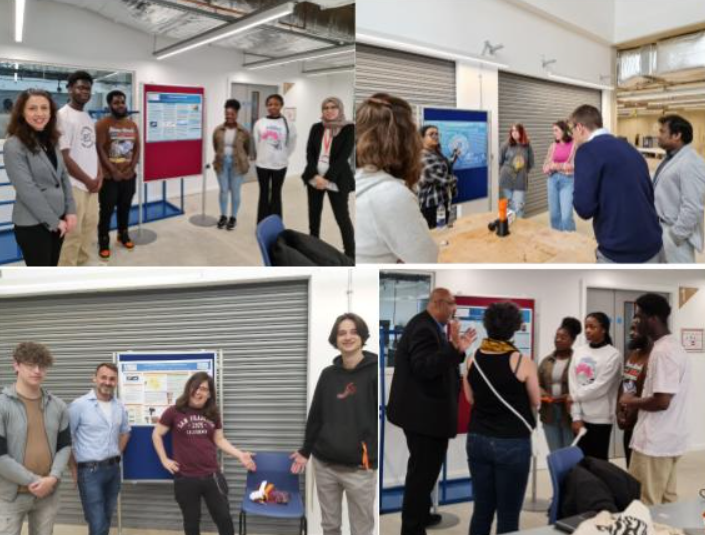In 2021-22, we had the privilege of leading a CDIO (Conceive, Design, Implement, Operate) student project at Canterbury Christ Church University (CCCU) in collaboration with eXroid Technology Ltd. This exciting project aimed to find engineering solutions to address the design challenges of the current electrotherapy device used for treating haemorrhoids. The project was embedded in one of the first-year shared modules across all engineering courses – Professional Practical Engineering module as a part of module learning outcomes and assessment portfolios. The CDIO project brought together students from Mechanical, Product Design, General and Biomedical Engineering courses to work together as a multidisciplinary team, to tackle real-world engineering problems and finding the most innovative, technically feasible and affordable solution. Working in groups, students focused on various aspects of the device to analyse the current technical issues, design and develop the solution to overcome those problems and evaluate its performance and quality. The project finally culminated in a schoolwide presentation event where students showcased their innovations in the presence of academics and industry professionals from eXroid.
Student Reflections
The students had a lot to say about their experiences. One student noted how their “CAD skills and confidence in presentations had improved”. Another student mentioned “tackling practical challenges that enhanced their future engineering skills”. A third student learned “valuable teamwork and rapid problem-solving skills in a medical context”.
From Student Project to Industry-Funded Success
The success of the CDIO project paved the way for further collaboration with eXroid. In June 2023, this led to a mini-KTP formed project (Knowledge Transfer Partnership) under the CCCU Boost Your Business Summer Scheme. This project focused on developing an alternative Bill of Materials (BOM) for the eXroid electrotherapy tool. One of our previous CCCU biomedical graduates, Ann Greace, was appointed as an associate who is now employed at Osteotec.
Building on the achievements of the mini-KTP, this year we secured an Accelerated KTP funded by Innovate UK. This project, currently in progress, aims to remodel the electrotherapy device. Two CCCU graduates, Victoria Pope (MSc Advanced Manufacturing) and Gayan Arachchilage (Second-year Product Design Engineering), are working as KTP associates on this project.
Research and Recognition
The project has also contributed to academic research, resulting in a publication at the 19th International CDIO Conference:
- Manna, S., Joyce, N., and Nortcliffe, A. (2023). Integration of graduate employability skills through industry outsourced CDIO project. In 19th International CDIO Conference, 26–29 June 2023, NTNU, Trondheim, Norway.
Project Leadership and Contacts
The project leadership includes Principal Investigators Dr. Soumya Manna and Dr. Hany Hassanin. KTP Associates Victoria Pope and Gayan Arachchilage are actively involved in the current Accelerated KTP project. Ann Greace, the previous BOM Project Associate, also played a significant role. The project partner, eXroid Technology Ltd, is represented by Michael Wilshaw, Managing Director, who remarked, “The talent and resources at Canterbury Christ Church University are very impressive. It’s been an absolute pleasure to work with both the students and lecturing staff on innovations that will continue to transform our potential, as well as the University management for their approach to partnerships with industry.”
Conclusion
The eXroid project exemplifies the successful transition from a student-led initiative to an industry-funded venture, highlighting the potential of academic and industry collaboration. The project not only advanced medical device technology but also enriched the educational experience by providing students with real-world challenges and fostering their professional growth. This journey from the classroom to the clinic stands as a testament to the innovative spirit and collaborative ethos at Canterbury Christ Church University.
Get in touch if you would like to find out more about our student projects or KTPs at edgehub@canterbury.ac.uk
 Engineering, Technology and Design
Engineering, Technology and Design Gabbie Matei
Gabbie Matei 1702
1702


